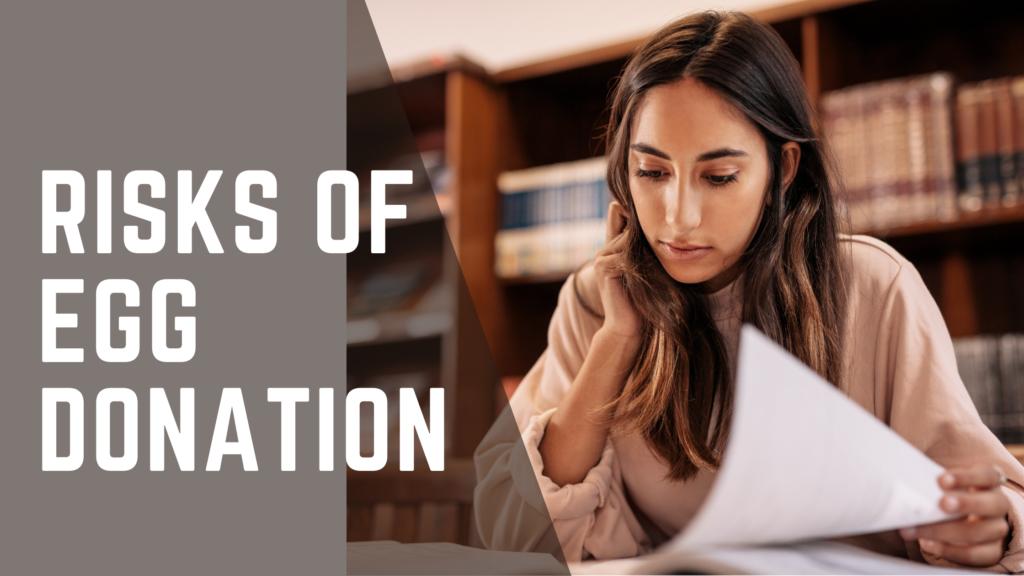Egg Donation programs are great for many different types of families. According to Resolve.com, about 12% of married women have difficulty getting pregnant. This is roughly 1 in 8 couples. Because of this, many are turning to egg donation to grow their families. This is rewarding for egg donors as they get the opportunity to help families grow.
Being an egg donor and donating your eggs to help infertile couples start a family is indeed a big decision. Many women choose to become egg donors for both altruistic reasons and the financial incentive it provides. One common concern among potential egg donors is whether the process could affect their future fertility and ability to start a family of their own. However, based on current studies, there is no evidence to suggest that egg donation jeopardizes future fertility.
That satisfaction and the monetary stipend are great incentives, however, there are risks involved. Our agency will advocate & educate through the process; however, it’s important for potential donors to be aware of these risks and make informed decisions.
Yes, egg donation, like any medical procedure, comes with its set of potential risks and side effects. It’s important for anyone considering egg donation to be well-informed about these risks. It’s crucial for potential donors to be aware of these risks and make informed decisions. Here’s a summary of the potential risks and side effects associated with egg donation, & our team is happy to further discuss any concerns you may have.
- Medication Side-Effects: Common side effects of the medications used in egg donation include bloating, cramping, sharp pains, nausea, constipation, headaches, mood swings, fatigue, bruising, and discomfort.
- Short-Term Risks:
- Ovarian Hyperstimulation Syndrome (OHSS): This can range from mild to severe. Mild OHSS (10-30% of cases) may involve discomfort, nausea, temporary weight gain, and can be managed with fluids, pain meds, and rest. Moderate OHSS (5-10%) requires follow-up care and may involve an ER trip for IV fluids, pain management, or fluid removal. Severe OHSS (1%) may necessitate hospitalization for treatment and observation.
- Ovarian Torsion: A rare complication where the ovary twists, cutting off blood supply, and may lead to tissue death. Immediate medical attention is needed.
- Cyst Formation: Medications can cause cysts; most disappear on their own, but in rare cases (<1%), they can cause discomfort or rupture, requiring hospitalization or emergency surgery.
- Long-Term Risks: Currently, there’s a lack of long-term studies on the effects of egg donation on future health. The potential long-term risks are not fully understood.
- Psychological Risks: There could be potential psychological risks associated with egg donation, including ambivalence or regret, either around the time of the procedure or years later. Prior to becoming a donor, you will have a psychological evaluation, we encourage you to discuss potential concerns with the provider.
- Procedural Risks: Like any medical procedure, there’s a risk of serious complications (1 in 1,000), such as internal bleeding, blood transfusion, organ infection, and general risks associated with anesthesia.
Even though there are inconveniences and discomforts to being an egg donor, many donors welcome the opportunity to do it again. As an egg donor, you are the solution & helping to create a happy family.
We welcome you to visit www.EggDonorInformation.com to learn more about other risks of being an egg donor.

We help Intended Parents Create Happy Families via Egg Donation & Surrogacy with the help of caring Egg Donors & Surrogates.
What is Egg Donation, Can I be an Egg Donor, Egg Donation Process, Common Egg Donation Questions, Becoming an Egg Donor, Qualifying as an Egg Donor, Egg Donation, Egg Donor process, Why to go through an agency?, Egg Donation Overview. Follow us on TikTok. Subscribe on YouTube. Listen to our Podcast.

